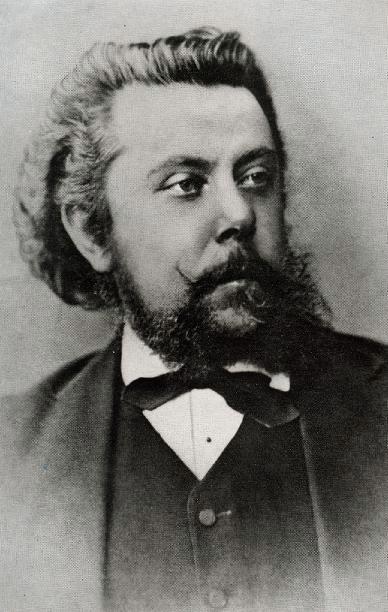It made a refreshing change for there to be an upbeat introduction to the Sea Pictures rather than have to listen yet again to BBC stuffed shirts being sniffy about the poetry.
Prom 39: Elgar, Errollyn Wallen, Mendelssohn & Mussorgsky - 15.08.19
Collapse
X
-
From the limited experience of hearing EW's new work through headphones, and obviously just one listen, the exuberance that Hannah French alluded to in the interval discussion did indeed come across. It's definitely more upbeat than not in its mood. Full marks to CM for her singing here, and again to EC and the BBC NOW for its work. Will need to give it another listen at home later.
Comment
-
-
I love it as well.Originally posted by Eine Alpensinfonie View PostNot at all. I heard the Orchestra of Opera North play it in Scarborough last month. It's superb, and probably the best. I've heard several others, but for me, nothing else come close. In my days at ON we used to do the Walter Goehr version in schools concerts; this I believe was prepared for seaside orchestras to use when they were of more-or-less symphonic strength. It's dreadful!
In my days at ON we used to do the Walter Goehr version in schools concerts; this I believe was prepared for seaside orchestras to use when they were of more-or-less symphonic strength. It's dreadful! I played several times in my early professional days for Walter's son Alexander who was a much underrated musician and conductor (note the distinction!
I played several times in my early professional days for Walter's son Alexander who was a much underrated musician and conductor (note the distinction! ) Walter himself was remembered by some Halle old hands as distinctly cantankerous. Does anybody have the recordings of him conducting the LSO and other orchestras that were released by the Concert Hall Record Club?
) Walter himself was remembered by some Halle old hands as distinctly cantankerous. Does anybody have the recordings of him conducting the LSO and other orchestras that were released by the Concert Hall Record Club?
Back to Pictures: one very fine version which I suppose is nearer to the sound of the original is that for (orchestral) brass by Elgar Howarth. I have been lucky enough to play that version with Mr Howarth conducting. Happy days!
Comment
-
-
Bits of this reading were 'off' to me as well, namely from the solo trumpet and solo horn. The rest was generally all right, but solo clams in the work do stick out like sore thumbs. Speaking of the end, it occurred to me to wonder how the tocsin bells for the end of DSCH 11 might have sounded here, unless they would have overwhelmed the proceedings.Originally posted by amcluesent View PostThat performance sounded rather 'off' to me, the horns wobbly as a one-legged stool and someone hitting a tin-can at the end
Comment
-
-
I'm disappointed to note a paucity of reaction to Errollyn Wallen's new piece. I was fascinated by the Interval talk that brought out the difference between Errollyn's stripped down piano score and the eventual rich orchestral overlay. Her idiom is not cutting edge but she's a very professional and experienced composer. Her music has clarity , direction and purpose. The vocal lines given to Catriona Morison sounded grateful to sing and they were supported but never overwhelmed by the rich, lyrical orchestration. The piece communicated both to the audience in the RAH and to me at home. I felt that the conductor knew and loved the work and she ensured that the BBC NOW responded in a like manner. The work and the performance deserve to be repeated and, perhaps, put on CD. Full marks all round. Not a masterpiece but good, solid fare.
Comment
-
-
Apropos Mussorgsky's "Pictures," it became apparent even to his contemporaries that here was an orchestral work straight-jacketed into a monochrome 2-stave format. Within a few years of Mussorgsky's death, Mikhail Tushmalov, a pupil of Rimsky-Korsakov, had produced an abridged orchestral version which R-K duly performed in 1891. Sir Henry Wood's version, also somewhat abridged, dates from 1915, and next came Leo Funtek's orchestration in 1922. Michael Russ, in his 'Cambridge Music Handbooks' discussion of the various arrangements, states that Funtek's orchestration "strongly contrasts with Wood's, and to a lesser extent Ravel's, in his almost absolute faithfulness to Mussorgsky's original."
Koussevitzky's commission from Ravel came next and was given its first recording by his Boston Symphony Orchestra. When Ormandy took over the Philadelphia Orchestra, following Stokowski's resignation, he decided that he too wanted a version of his own, so he commission one from Lucien Cailliet, a Philadelphia woodwind principal and also a composer and arranger in his own right. This arrangement was recorded on 78s in 1937 and doubtless prompted Stokowski to enter the fray with his own transcription two years later. He evidently felt the Ravel version was too "Gallic" so he produced what he felt was a more "Slavic" orchestration and to make the point dropped the two "French" pictures, 'Tuileries' and 'Limoges'! Gorchakov and Ashkenazy evidently felt much the same, so that accounts for their own versions. Lawrence Leonard however, decided that the work would make an excellent concerto, so he retained the piano part and clothed the work in orchestral colour.
I'm quoting from the Wiki entry on "Pictures" which features a 'partial listing' of all the various arrangements of the work, from Tushmalov in 1886 all the way up to Tomazs Golka this year, something like 70 different versions in all. These include not only all the orchestral transcriptions but also arrangements for jazz bands, rock groups, synthesizers, brass bands, organs, guitars, etc. In short, Mussorgky's "Pictures" has to be the most-arranged piano work of all time! ...
Comment
-





Comment